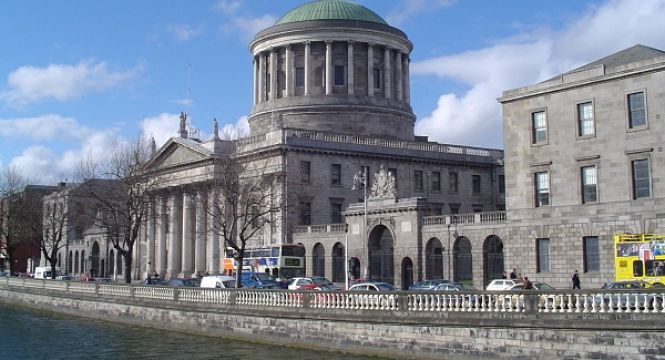Farah Damji (53), who submitted that she has been working as an artist in Ireland, had earlier this week applied for bail while she awaits the hearing of extradition proceedings brought against her by the UK.
However, High Court judge Mr Justice Tony Hunt said on Thursday that if he were to ignore Ms Damji's high risk of absconding, the "the casual observer might think I had taken leave of my senses".
Ms Damji fled to Ireland in February this year during her trial in which she was convicted in her absence by Southwark Crown Court, London, of twice breaching a restraining order in April and June 2018.
Ms Damji, who presented herself as an Icelandic national and was living at an address at Bachelor’s Walk, Dublin 1, is the daughter of a South African-born property tycoon and has a criminal record for fraud and theft stretching back to the 1990s.
Mr Justice Tony Hunt, delivering his judgement refusing bail on Thursday, said that Ms Damji was at "high risk" of absconding if granted bail in Ireland.
In supplemental submissions today the applicant's barrister, Mr Leo Mulrooney BL, told Mr Justice Hunt that medical documents and emails had been supplied to the court corroborating Ms Damji's previous claim that she was not intending to "lay low in Ireland forever".
Mr Mulrooney said that Ms Damji was attempting to regularise her position in Ireland and that she had to make arrangements before consenting to her arrest here.
Artwork
Samples of Ms Damji's artwork were also handed in to court as proof she had been working as an artist to supplement living here in Ireland, corroborating what she had said at a previous hearing, where she denied having access to her deceased father's wealth.
Mr Justice Hunt said that in the case of a European Arrest Warrant issued in relation to a conviction in absence in a foreign jurisdiction, there was no presumption of bail being granted by the domestic jurisdiction.
"In any realistic view, the Minister [for Justice] has established a substantial risk of absconding rooted in real evidence and the previous behaviour [of Ms Damji]," said Mr Justice Hunt.
The judge said that Ms Damji had left the UK midway through a trial that was concluded in her absence, a "highly relevant" fact that he said was "intimately connected with the application for surrender".
The judge acknowledged matters raised by Ms Damji's counsel, Mr Mulrooney, regarding a 2019 diagnosis that she was suffering from complex PTSD but concluded that in the case of Ms Damji that it was not, on its own, enough of a factor to grant or refuse bail.







